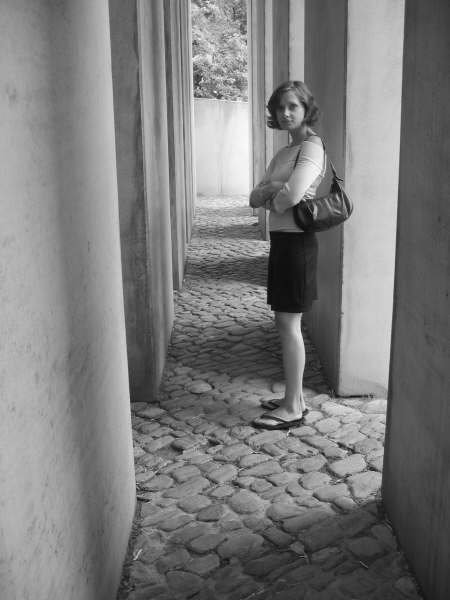Right now (at 8:29 p.m. on 8 March 2007) both Radio-Canada and CBC Radio Two are broadcasting a concert live from the Spectrum concert hall in Montreal. 30 Ans, Une Voix/30 Years - 1 Voice celebrates the 30th anniversary of International Women's Day (IWD). I was unaware, until 8:08 p.m. (when, in search of some nice nighttime jazz music, I tuned into Espace Musique) that it was IWD. I feel badly that I didn't know.
The United Nations established IWD in 1977. Status of Women Canada's website reads that, each important 8 March thereafter, we have celebrated the advancement of women's rights and have assessed the challenges that remain. IWD is to encourage us to work for equality for women and girls.
What's more, this year Canada marks International Women's Week (IWW) from Sunday, March 4, to Saturday, March 10. Oops. Now I feel like a real moron for failing to notice this week-long commemoration. Why do I feel badly? Well, primarily, because I am a woman. Shouldn't I have known? Shouldn't IWD be among those annual events I deem it important to remember?
Perhaps my guilt, and Radio-Canada/CBC's concert, resonate particularly strongly with me in the wake of our discussion about historians telling others' stories. As a member of the female sex, I feel obliged to mark IWW and IWD. My guilt is a genuine, authentic reaction to the sense that both are events for women, commemorated by women. 30 Ans, Une Voix corroborates that notion. Patti Schmidt and Sophie Durocher host the evening. All of the performers are female. Schmidt and Durocher introduced Renée Claude as "the image of a modern woman." The evening's songs, they explained, tell of love, liberty and of striving for equality.
'Well, of course, that female focus only makes sense', I am wont to say. Would Canadians, then, (men and women) find it strange if a man was included in the concert bill? What if male artists comprised two of the nine performers? What if the evening featured two female, and seven male musicians? Can men celebrate International Women's Day? What kind of listener responses would inundate CBC and Radio-Canada had their broadcast been a male artist-only affair?
Historians, we seemed to conclude on Monday, should be free to tell others' stories. I recall, however, a particular tutorial that I led in the fall on women in medieval Europe. Surrounded (literally) by young women, a male student blushed in response to a question about power relationships. "I'm not gonna touch that one" he laughed, gesturing to the female students to answer my question, instead.
Let's imagine that male student were to take up women's history and, in 2027, were to curate an exhibition (as was Diana's interesting suggestion) about women and menopause at the ROM. What kind of response, Diana challenged, might his work garner from the Canadian public? I am unhappy to admit that, no matter how learned that man might be about menopause and related women's issues, how much he had conversed with women's groups in the development of his exhibition and to what great extents he had involved women in the exhibit's production, I would wonder at his qualifications for the job. I can't reconcile my 'gut feeling' that, in this hypothetical case, only an 'insider' to the group could best represent issues pertaining to women with my sentiments about the ROM's controversial Into the Heart of Africa exhibition. About that case, I believe that if she had communicated effectively with members of African and Caribbean communities in Toronto and adequately involved such members in her exhibition planning, the ROM's Jean Canizzo could have mounted an exhibition on objects collected by Canadians in Africa. I can't, right now, stand behind a firm personal philosophy on the telling of others' stories.
Incidentally, 19 November is International Men's Day in Trinidad and Tobago. Australia's Dr. Michael Flood has written an interesting open letter rejecting IMD as an inappropriate, and ineffective way to improve men's health and well-being. IMD invites a conservative understanding of gender relations, he argued. Flood's argument against "me-too-ism" has challenged me to think on ways that men could participate, with authority, in telling women's history and in marking International Women's Day.
Thursday, March 08, 2007
Subscribe to:
Posts (Atom)
